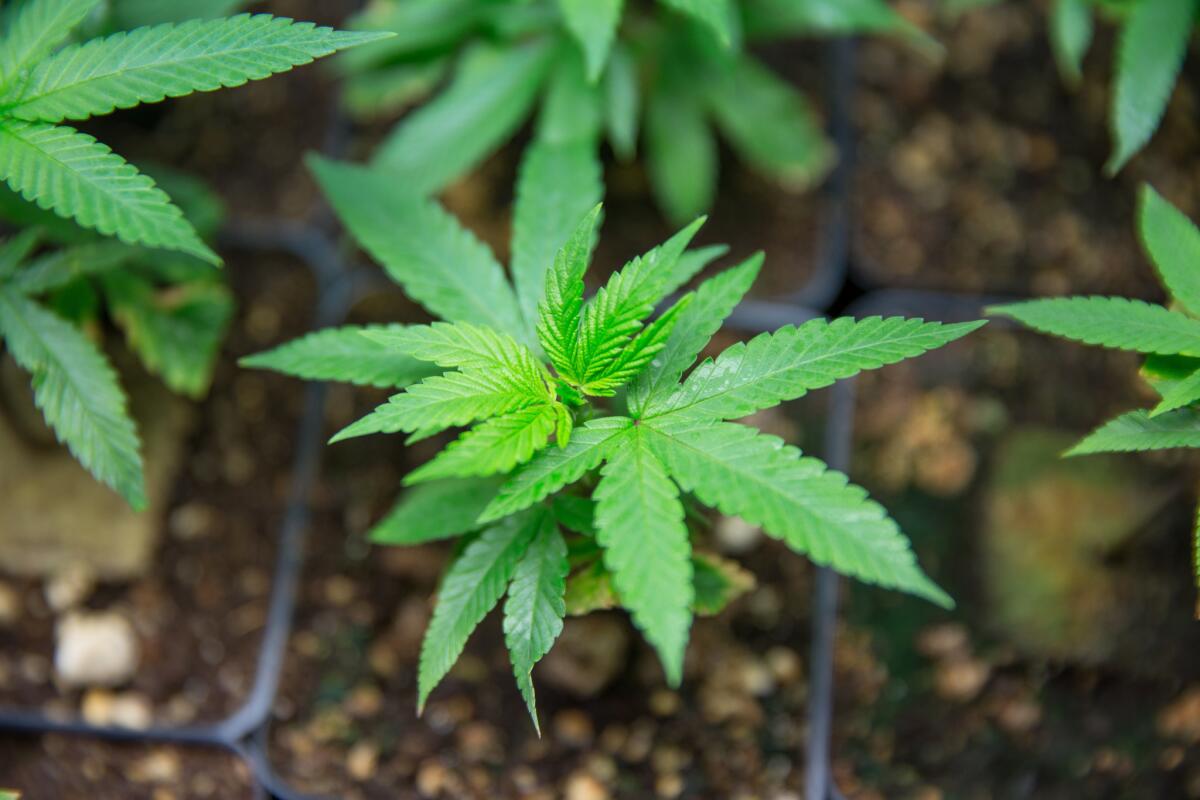Lynwood moves closer to legalizing commercial cannabis manufacturing

- Share via
The city of Lynwood is close to approving a measure that would allow businesses to grow medical marijuana within city limits. If it gains final passage, the southeast city of 70,000 would be among the first in Los Angeles County to issue such permits.
On a 3-1 vote, the City Council on Tuesday approved the first reading of an ordinance that would amend the zoning code to allow commercial cannabis producers to cultivate and manufacture marijuana in industrial zones.
“As a responsible city government, it is incumbent on us to issue strict controls, regulations and license the growing and manufacturing of cannabis,” Lynwood spokesman Robert Alaniz said in a statement Wednesday. “And that we set the standard for local municipal regulation of California’s newest and voter approved industry.”
In November, California voters approved Proposition 64, which legalized the recreational use of marijuana. The new law allows Californians who are 21 and older to possess, transport and use up to an ounce of cannabis for recreational purposes and allows individuals to grow as many as six plants. The measure will also allow retail sales of marijuana and impose a 15% tax.
If passed, Lynwood’s law would allow the licensing of up to five businesses to grow or manufacture marijuana at any given time. Those properties cannot be within 600 feet of a school or daycare facility or within 50 feet of a residential zone.
The proposed ordinance was drafted before passage of Proposition 64. City officials said the measure could be amended to include manufacture of recreational marijuana, but Alaniz said no decision on whether to seek that change has been made.
The ordinance will need at least one more reading before it becomes law. The measure is scheduled to be heard again at the Dec. 20 council meeting.
Aaron Herzberg of CalCann Holdings, a marijuana real estate company, said Lynwood would be among the first cities in Los Angeles County to license the growing, manufacture and extraction of cannabis. Herzberg estimates that locally produced cannabis could generate as much as $5 million in annual tax revenue for the city.
City officials said they want to regulate cannabis-related businesses to protect the safety of residents and generate much-needed revenue to maintain the city.
“We anticipate that our rigorous rules will ensure public safety, generate local jobs and stimulate the local economy while generating substantial revenue for the city to pay for critically needed city services,” Alaniz said.
The proposed law would not change the city’s stance on medical marijuana dispensaries, which would still be banned, officials said.
For more California breaking news, follow @AngelJennings. She can also be reached at [email protected].
More to Read
Sign up for Essential California
The most important California stories and recommendations in your inbox every morning.
You may occasionally receive promotional content from the Los Angeles Times.











